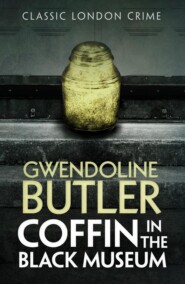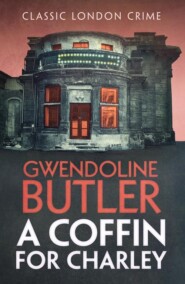По всем вопросам обращайтесь на: info@litportal.ru
(©) 2003-2024.
✖
Coffin’s Dark Number
Автор
Год написания книги
2018
Настройки чтения
Размер шрифта
Высота строк
Поля
The Club was in a peculiar mood this last week, and that worried me. I’m obliged to be responsive to mood. I have to see the danger signals before anyone else. Today it seemed to me these signals were being run up from certain quarters. Of course, we’d never been what I’d call a united group, each of us approaching the common aim from a different viewpoint, from Miss Jones’s open-minded optimism to John Plowman’s detached belief. In the centre were three or four members, like Esther, who were convinced that all UFOs were genuine for emotional reasons. Cy was right there. These people believed because the idea of little men flying in from space fascinated them. They were living out a fairy-story they’d read when they were kids. Oh, I knew that all right. I say nothing about Cy’s claims to scientific rationalism because I was never quite sure how far this existed.
Esther Glasgow had objected to the report John had drafted and I had written; her friend Peter had objected to the letter I had written to a similar club in the USA. “Too cagey,” he’d called it. The secretary (technically I’m secretary of the Club, in practice I’m everything that requires pen and paper) has to be. I form the public image. We don’t want it formed in a crackpot image, do we?
Or do we? Yes, there was no doubt where the danger was coming from. The central emotional block. And behind it I strongly suspected was Cy Read. He was jealous of John Plowman. I could see his point. After all, it was in John Plowman’s name I corresponded with our contacts across the Atlantic and it was John Plowman who organized the sky-watching routines and got first chance to prove or disprove an “incident”.
A brief conversation with John Plowman was worrying me also. To a limited extent he made me his confidant.
‘Of course, one has to ask oneself about these visitors from space: what their intentions are. I’ve always assumed their interest in us was a benign one.’ He looked uneasy. ‘Just lately, I’ve wondered if we were wise to rely on this.’
I know I didn’t answer, but I suppose he saw the look on my face.
‘There seems to have been a concentration of activity in this district. We seem to be a focus,’ he went on, ‘and I don’t feel the result has been towards tranquillity.’
It certainly was not. There was a bad feeling everywhere lately, arising from the matter of the children, of course.
‘Indeed, I’ve been getting strong intimations that something was going to happen.’
‘How? Where do you read these intimations?’ I asked bluntly.
‘Naturally they don’t put it in the newspapers,’ he said irritably. ‘I receive it in my mind. We are to get some sort of proof. There will be a sign.’
‘Yes, that is quite worrying,’ I said, carefully keeping all feeling out of my voice. ‘Any details?’
‘Just an impression comes into my mind that it will relate to someone who thinks he can fly.’
‘I only know one person round here who thinks he can fly,’ I said, surprised. ‘And I thought he’d given the idea up.’
Butty. Tom Butt. Butty (as we sometimes called him in unkind reference to his over-large buttocks) was at school with me. Spotty, dirty, fat, he had all the stigmata of the born victim, and seemed to know it too. He went out of his way to set us off. Like telling us that he dreamt he could fly. Without a doubt there was a sexual pleasure in our sport with him, just as there was in Butty’s dreams that he could fly.
‘I’m not happy about it all,’ observed John Plowman. ‘These ideas I get disturb me.’
They disturbed me. Without committing myself one way or another to the behaviour of the visitors from space (which might be good or not good, we had to see), I was beginning to be anxious about our little group. Wasn’t there a strong sexual element in our preoccupation? We were a focus for something all right. I did wonder exactly what we were letting out into the world. Or stimulating.
I hung my coat up and went into the kitchen where my sister, Jean, was sitting drinking tea. She looked up.
‘Back from meeting your loonies?’
I’m afraid she’s picked up that rough way of talking from my father. It won’t get her anywhere. I didn’t answer but poured myself a cup of tea and started to drink it. They weren’t loonies. A little unusual perhaps in their interests, but not loonies, or I wouldn’t be associated with them.
‘Seen anything lately?’
‘You know I’ve never seen anything,’ I said. ‘I don’t even look. That’s not my job.’
She snorted. Very few women can make that noise, but she could. ‘What do you get out of it?’
The second person who had asked me that tonight. ‘I’m practising,’ I said, and sipped my tea.
‘It was me that made that tea you’re enjoying so much,’ she said.
That’s another thing she’s learned from my father; how to make a good cup of tea. They’re remarkably alike. There are just the three of us, me, elder sister, and my father. My mother died a long while ago. I half remember her. Some days more than others. And I suppose that’s how it is with my sister too. Some days she looks more like the photograph of my mother and the other days not. I’m always frightened she’ll get to look like my father.
‘You’re pretty,’ I said.
‘Why the compliment?’
‘Oh, I don’t know. Perhaps I’m a bit low-spirited tonight.’
‘Oh.’ She considered. ‘Where’s Judith?’ Judith was my former girl friend. Former, since last night.
‘We’ve split up.’
‘Why?’ There again she was like my father. She had to know why. No tactful silences. Still, it was easy to answer.
‘She said I don’t raise her spirits.’
‘Oh.’ Once again she considered. ‘You raise mine. I often get a good laugh out of you.’
‘Thanks.’
‘Oh well, you’ll get another girl.’
‘I won’t get one with a car. Not round here.’ It was luck having pulled in one girl friend with an automobile in this neighbourhood. Hers was a beautiful little white Triumph convertible, too. You froze in it in winter (she never let you put the hood up) but you felt a real he-man in summer. We only had one summer together, me, Judith and the car.
‘She still on the stage?’
‘Resting. Trying out for a part tomorrow.’
I got up to go upstairs to my room. ‘Dad out?’
‘No. Out the back watching his birds.’
At the door, I said: ‘Can I have the front room this day week?’ Jean nodded.
The Club occasionally met here. When it did Jean served coffee and cake and popped in and out observing us. I think she rather enjoyed it. I’ve noticed that this family’s pleasure tends to be vicarious. Jean watches me, I watch the Club and Dad watches his birds. I must check this tendency.
I enjoyed the Club meetings myself. When we were really functioning well, comparing notes, checking photographs, suggesting future projects, all of them looking to me for directions, I had the feeling of the chain of power stretching directly from John Plowman to me and going no further. That was how I wanted it in that group and that was what I meant by practice. We might be stretching out to other galaxies, but as far as I was concerned it was strictly an exercise in politics.
On my way upstairs I looked out of the window on the stairs and saw a police car go past. Three children in eighteen months and all living within one square mile of each other. Three children just gone. Sixpence in the pocket, ta ta, Mum. And then never seen again. She was the first, Shirley Boyle, aged eight.
I went on into my room and sat down on my bed. Jean didn’t come into this room much; I dusted it and looked after my bed. Jean knew I liked my secrets.
I drew the curtains on the night. The police car came back down the road. This time I could see a man in the back. He had a solid official look. We have a high-ranking policeman living round the corner from us. He’s called Coffin. He has a wife who is observed sharply by the old cats of the neighbourhood because she is an actress and this naturally alerts their moral sense. Judith was going to introduce us before we broke up.
Down below I heard the telephone ring. When I’m established in my chosen way of life I shall have a telephone in every room. I hate people shouting up the stairs for me.
‘Coming,’ I called.
‘David,’ she said, when I got to the bottom of the stairs.











